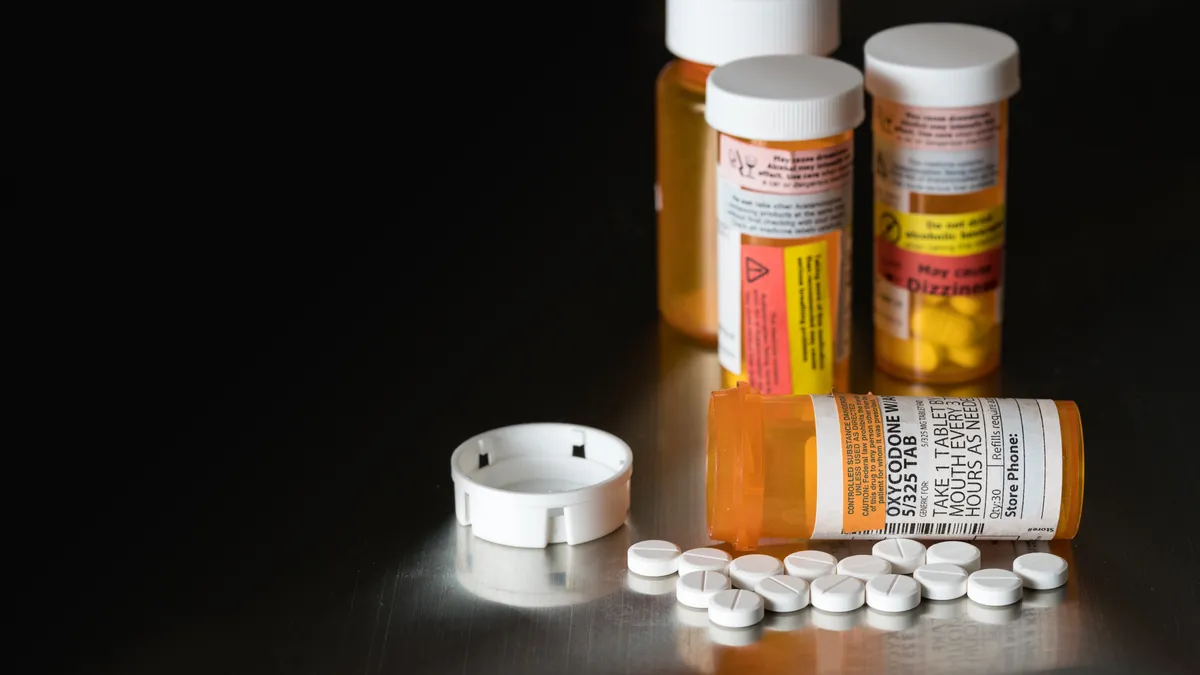Dive Brief:
- The National Waste & Recycling Association (NWRA) last week wrote a letter to Rep. David B. McKinley, R-WV, to endorse the "Access to Increased Drug Disposal Act of 2018" (H.R. 5628), which McKinley introduced in late April.
- The bill would enable the Drug Enforcement Agency (DEA) to offer state grants that help with the cost of acquiring and disposing of controlled substances to curb the opioid crisis.
- NWRA's Healthcare Waste Institute works as a resource for technical and regulatory assistance regarding responsible healthcare waste management.
Dive Insight:
As the opioid crisis has grown into a severe epidemic, the waste industry has worked rigorously to promote drug "take-back" and collection programs. These programs have been particularly popular in the Northeast, where most mayors and city managers identify the problem as a "significant challenge." Massachusetts was the first state to ever mandate a take-back program, and Covanta recently entered a 5-year contract with the New York Department of Environmental Conservation to dispose of unused medications collected at 250 drop-off kiosks around the state.
In April 2018, the National Prescription Drug Take Back Day resulted in 474.5 tons of prescription drugs from 5,842 collection site across the U.S. This was an increase from 456 tons the year prior, and the next Take Back Day — scheduled for October 27 — is slated to bring in even more medication.
Aside from keeping prescription drugs out of the hands of addicts, drug take-back programs are critical to reduce "pharmaceutical pollution" and keep medications from getting flushed or tossed in the trash, where they could ultimately end up in waterways and drinking water. The Product Stewardship Institute reported in 2016 that over $1 billion in leftover drugs are thrown in the trash, flushed or consigned to medical cabinets.











